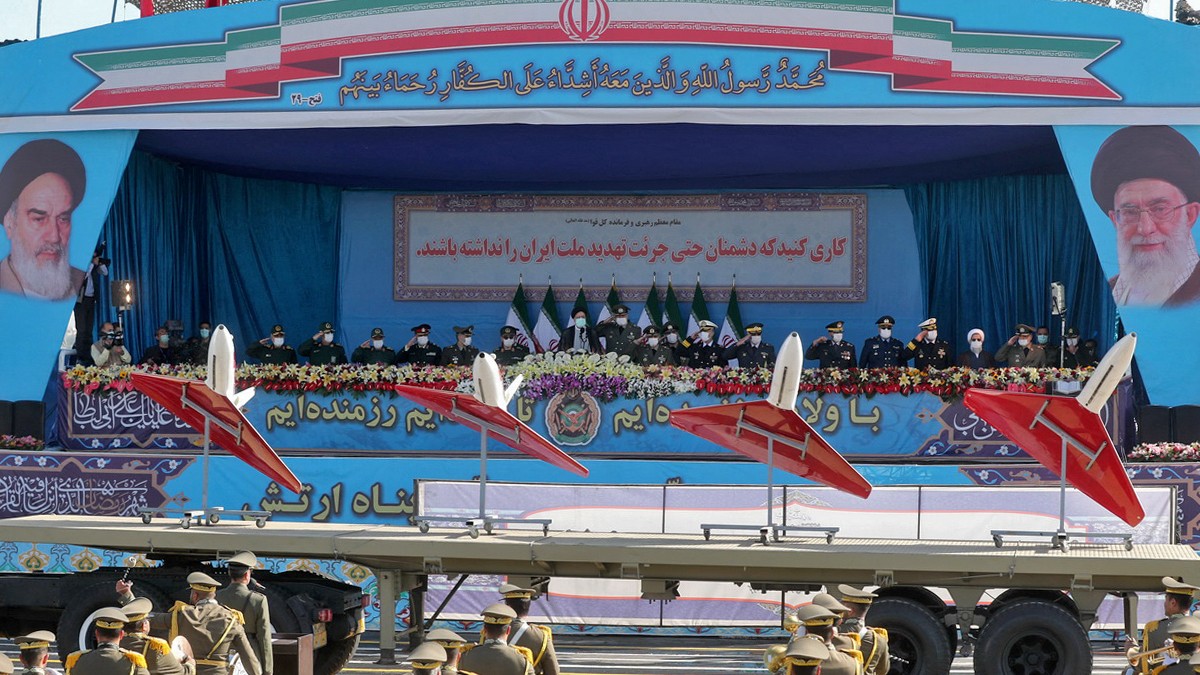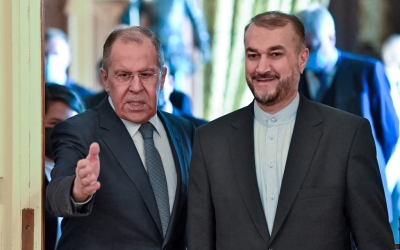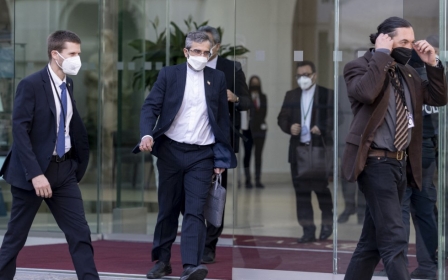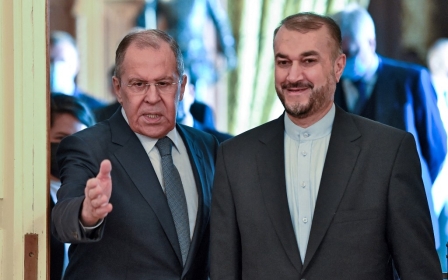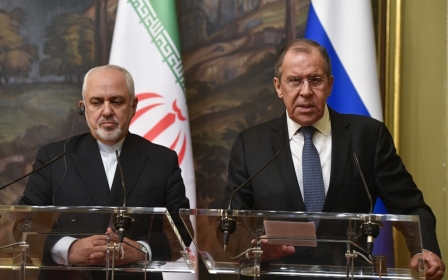Putin's Iran trip: Why Moscow and Tehran need each other more than ever
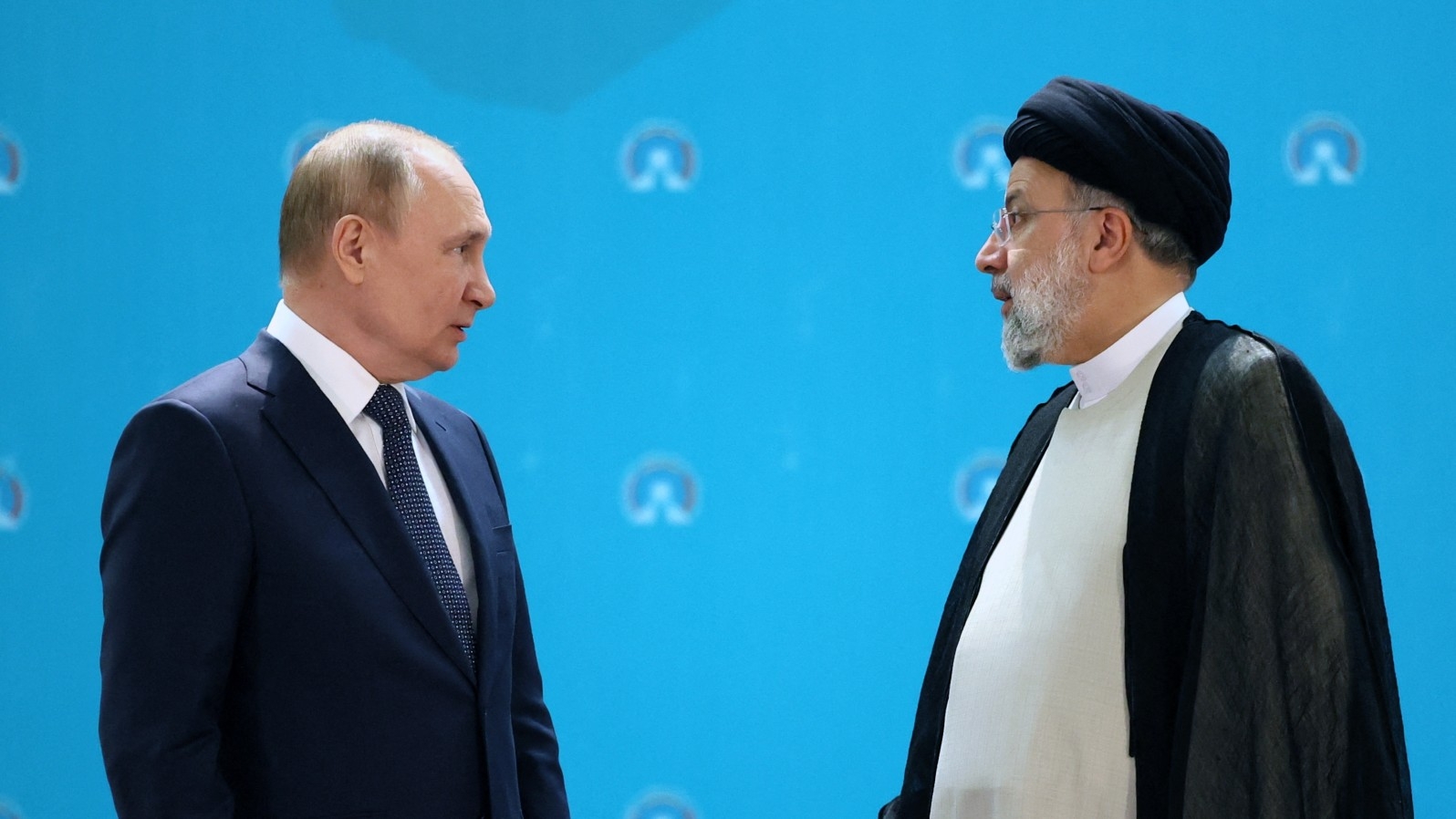
This week, Russian President Vladimir Putin will visit Tehran and meet the presidents of Turkey and Iran to discuss the Syrian peace process. But amid a full-scale conflict with the West, Syria does not seem important enough to form the basis of one of a handful of the Russian president’s foreign trips.
Putin’s visit to an ally in the Middle East immediately after US President Joe Biden’s trip to the region should be seen in the context of Russia-Iran relations. Since the eruption of the Ukraine war, Tehran’s role in the strategic chess match between Russia and the West has become crucial for Moscow’s security, energy and geo-economic policies.
Tehran’s role in the strategic chess match between Russia and the West has become crucial for Moscow’s security, energy and geo-economic policies
In a broader sense, the strategic relations between Moscow and Tehran are the result of a common understanding between Putin and Iranian Supreme Leader Ayatollah Ali Khamenei on the need to confront western attempts to impose a regional order that favours the West. This understanding first materialised with their military cooperation in Syria to preserve President Bashar al-Assad’s government and prevent regime change from abroad by the US and its European and regional allies.
The position of Iran’s leadership towards the Ukraine war shows that the Syria cooperation was not an isolated case, and the Moscow-Tehran alignment has since become more profound. Putin now views Iran as an important ally against the West, recently describing their bilateral relations as “deep” and “strategic”.
The two states have thus coordinated their attempts to confront western economic unilateralism and sanctions. After Iranian President Ebrahim Raisi visited Russia in January, Tehran and Moscow initiated extensive economic cooperation. The Ukraine war and ensuing sanctions on Russia further increased Tehran’s importance to Moscow, which has steadily opened the doors of the Russian economic sector to the sanctioned Iranian state.
New MEE newsletter: Jerusalem Dispatch
Sign up to get the latest insights and analysis on Israel-Palestine, alongside Turkey Unpacked and other MEE newsletters
Circumventing sanctions
In a significant move, Russia recently agreed to transit 10 million tonnes of cargo through the International North-South Transport Corridor, which connects Mumbai to Moscow via Iran and Azerbaijan, and could be a substantial source of revenue for Iran.
Russia also wants to resume contracts for the development of Iran’s oil and gas industry, suspended amid US sanctions after the American withdrawal from the Iran nuclear deal, and to sell Iran advanced air defence systems and fighter jets.
At the same time, Iran has reportedly offered to help Russia circumvent war-related sanctions, while also seeking to sell Moscow drones and to assist with training military forces in how to use them. This military and economic cooperation suggest that Iran and Russia do not recognise the sanctions against each other - and they believe extensive collaboration can lead to mutually beneficial contracts, while relieving the sting of sanctions.
In meetings with the Iranian leadership, in addition to discussing their converging positions on the global economy, the war in Ukraine and the nuclear deal, Putin is also expected to talk about finalising a 20-year strategic agreement between Iran and Russia, the free trade agreement between Iran and the Eurasian Economic Union, and the completion of Iran’s ascension to the Shanghai Cooperation Organisation.
Although the Iranian public might still hold a pessimistic view of Russia’s domestic and foreign policies, state-controlled media are making extensive efforts to change this mindset, delivering programmes that aim to portray Putin’s Russia as different from its predecessor - a country with progressive economic capabilities that can help combat the western threat.
Sending a message
Indeed, Iran needs Russia’s diplomatic and military support in the face of emerging threats. To maintain a credible level of deterrence against the US and its allies in the region, and in the face of collective initiatives such as the “Middle East Air Defence Alliance” and Israeli threats, Iran hopes to receive advanced Russian weaponry, including radars and fighter jets.
State-aligned media have vowed that if the regional joint air defence network threatens Iran’s security, it “will respond decisively to the closest and most accessible targets”. This vow surely hinges on hopes of Russian diplomatic or hardware support.
Iran’s leaders see the delivery of these weapons in the framework of their mutual strategic security exchanges with Russia.
From this perspective, Moscow must provide Tehran with the requested arms in exchange for Iran’s assistance with keeping and managing Russian bases in Syria (where Russian troops have left to fight in Ukraine), or for strengthening the tactical aerial combat power of Russian forces with Iranian-made drones.
The Raisi government, whose foreign policy strategy entails developing relations with Russia, China and neighbouring countries, will present Putin’s visit to Iran as a symbolic result of diplomacy with non-western powers.
Putin’s presence in Iran will also significantly strengthen the position of the conservatives against the moderates, who widely criticised Raisi’s visit to Russia earlier this year.
This is part of the same message Putin wants to convey. By visiting Iran, he wants to show that he is still a powerful leader who will not allow regional orders - from Eastern Europe, to the South Caucasus, to Central Asia and the Middle East - to change without securing Russia’s role and interests.
As Russian Foreign Minister Sergei Lavrov has noted, Tehran “will make a significant contribution” to the “emerging multipolar world order”.
The views expressed in this article belong to the author and do not necessarily reflect the editorial policy of Middle East Eye.
Middle East Eye delivers independent and unrivalled coverage and analysis of the Middle East, North Africa and beyond. To learn more about republishing this content and the associated fees, please fill out this form. More about MEE can be found here.



